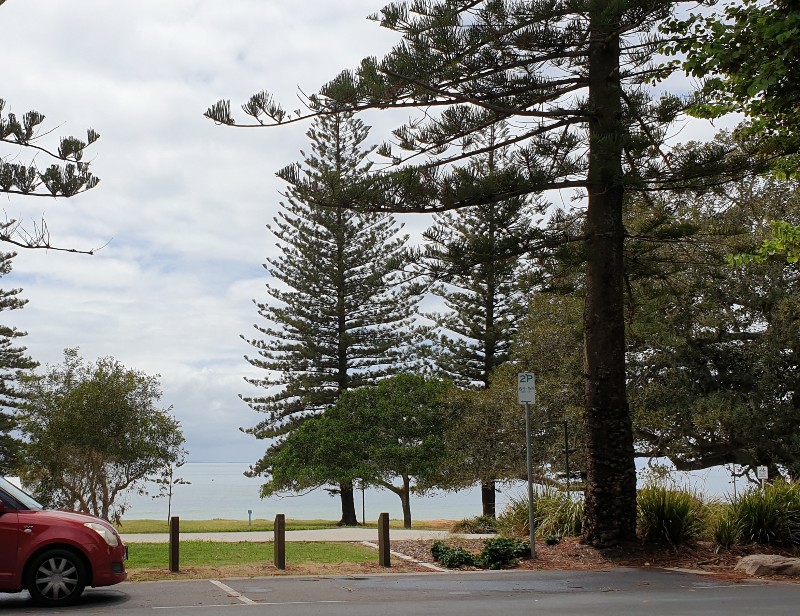She told me I was, “as high as a Georgia Pine, “and a barrage of foaming at the mouth and swearing ensued.

As an Australian, I’ve encountered vehement opposition and online tongue-lashings from American citizens, so gun control isn’t a subject, I’ll often discuss. This latest event crossed a line:
A six-year-old child was arrested in Newport News, Virginia…now in police custody. What did he do? He shot his teacher. The child, a first grade student, barely out of diapers, brought a gun to school … and shot his teacher in the chest. The superintendent of Newport News Public Schools, Dr. George Parker, said at a news conference that “we need to keep guns out of the hands of our young people.” Jill Dennison – Filosofa
This shocking news should concern any sentient being, but achieving gun control in America appears as illusive as ever? Why?

Those who champion easy access to guns so quickly become defensive, hyper-aggressive and completely panic-stricken with even the slightest suggestion that access to assault weapons or handguns be further controlled.
Fifteen years ago, I expressed sadness to a Georgian citizen online during a simple eBay transaction who told me she needed a gun for protection. In the unlikely event of a home invasion, I told her I thought having a gun in the house did not equate with a feeling of protection. Rather, I would worry there was an increased risk that the gun might be used for harm against me, or another member of my family.
Her limbic flight or fight system went into overdrive. She told me I was condoning that she be raped!
Indeed, I was not.
I told her I was simply sad to hear that she lived in an area with so much violence that she believed that keeping a gun was necessary. I was surprised at her response.
She told me I was, “as high as a Georgia Pine, “and a barrage of foaming at the mouth and swearing ensued.
I ended the conversation.
Why do (certain) Americans feel that having a gun makes them safe?
The Man of the House has a relative who married an American. She kept her Australian citizenship, worked in hospitals for many years and one day she discovered her American husband had a gun in the glove box of the car. With horror, she told him that if the police pulled her over and discovered she was driving around with a gun, she could be deported as an alien with a gun! A little old lady who had never had any record of any kind.
Justine Diamond was an Australian girl shot by a Minneapolis police officer while approaching them for help.
Is the society so dangerous, minute by minute that having a gun is absolutely necessary? Is it dependent on locale, or unnecessary at all? What if all guns were removed from the community?
Perhaps in tackling the causes of the fear and addressing any that can be addressed, we might gain some understanding about how to deal with it?
How the World Perceives America
Jill commented that the world must be laughing at America and what has happened in recent times, in regard to the ex-president, who I have read famously bragged that he, “could shoot someone and not lose votes.”
[Open-mouthed gob-smacking resounded around the globe following that report, but laughing, no. It isn’t funny, it’s worrisome.]
Speaking as an Australian, I wouldn’t use the term laughingstock, when referring to the US, as it is an important political friend and economic partner for us and the world. People are free to vote for whatever person they see as fulfilling their hopes and dreams, at that time. That is democracy and yes, voters get it wrong, sometimes. Dangerous nutters or fools can rise to power – just look at Germany in the early 20th century.
However, if I can speak generally, Australians don’t see America as the same country that saved the free world in WWII. USA has changed.
Aussies do shake our heads in disbelief at the “Trumpist,” supporters and trends. At the last election, that kind of rhetoric was more or less rejected by our country. The only contribution Trump made that could be remotely positive was to inspire a derogatory English language idiom. But then, perhaps he has some other redeeming quality? Please enlighten me, as I can’t see it.
Anything extreme arouses suspicion. Trump’s rhetoric is extreme. Children with access to guns is extreme, in any country.
What Americans Fear
The fears Americans have of personal harm and home invasion; that desire to feel powerful and safe; the mentality of the American right to bear arms – appears difficult to shift. It seems inbuilt in the psyche of some individuals. They appear to mistakenly associate patriotism and strength with access to weapons. Powerful weapons.
Does that fear come from an underlying insecurity at being at the top of the pecking order, politically speaking? Witnessing the prevalence of gun violence and death on devices and TV screens? Or is it the repeated exposure over and over to seeing violence and championing those who kill the ‘bad guy,’ in the story with a gun?
On Boxing day, there was a home invasion in my region. A terrible tragedy and thankfully a rare event.
Tragically the female fought the assailant, a young teenager, who was armed with a knife. Unfortunately, she died from her injuries. Two young girls are now living their lives without their Mother and Christmas will never be the same. This has sent the community into overdrive, but NOT to buy guns.
Instead, Australians look to install security screens, security cameras, organise neighbourhood watches, ensure doors are not left unlocked, get petitions going to get harsher penalties for juvenile crime, make charities administering half-way houses for youth offenders more accountable, and campaign to support the victims. Emma’s law means this lady will never be forgotten.
I doubt that that community’s first thought would have been to obtain a gun. I, myself, have used a gun in sporting and target shooting, at the sporting shooters open days. I have held a lethal pistol in my hand.
Even so, there is no way I could shoot a living thing, not even a rabbit. It is not in my being.

Rate of Civilian Firearm Possession per 100 Population in Australia
The estimated rate of private gun ownership (both licit and illicit) per 100 people in Australia
2020: 14.831149
2019: 14.95
2018: 15.12
2017: 15.02
2016: 14.80
2015: 14.51
2014: 13.99
2012: 13.67
2011: 13.60
2010: 13.6815
2007: 13.25
2006: 14.24
2005: 15.010
1997: 13.5815
1996: 17.59
1988: 21.34
1975: 14.92
The level of privately held guns is still lower than the 1996 level after which a national firearm agreement and buyback was introduced and the percentage of households with firearms has remained at less than half the 1996 level. In Australia, annual deaths resulting from firearms are less than half to one-third the 1996 level. www.gunpolicy.org/firearms/region/australia
Mass Shootings in Australia
In the decade before the country’s change of direction, 100 people died in eleven mass shootings (Chapman, Alpers et al, 2006).
Following the 1996 announcement of legislation specifically designed to reduce gun massacres, Australia has seen no more mass shootings.
Firearm-related deaths that attract smaller headlines still occur, yet the national rate of gun homicide – which before Port Arthur was already one-fifteenth the U.S. rate – has now plunged to 0.13 per 100,000, or 27 times lower than that of the United States (Alpers, Wilson and Rossetti, 2013c).
I wish for those folk who oppose gun control to think about the abovementioned stats and what controlling guns MIGHT potentially do for society.
In Australia, there has never been a shooting with a high-powered automatic weapon since Port Arthur Massacre in 1996. The only positive to come out of that tragedy. I visited the location 12 months after the massacre and the blood stains of the victims were still evident on the floor tiles in the Broad Arrow Cafe.
Seeing that affects any sane person.
Tighter regulation was imposed immediately after the Aramoana massacre in 1990, the Scottish Dunblane and Australian Port Arthur massacres in 1996. After the Christchurch mosque shootings in 2019, legislation to restrict semi-automatic firearms and magazines with a capacity of more than 10 rounds, and provide an amnesty and buyback of such weapons was introduced and passed by the New Zealand parliament. {Wiki}
What is it prevents a change of attitude towards guns in America?
Is the NRA’s hold via monetary support and pressure to politicians so great that it cannot reverse America’s thinking?






